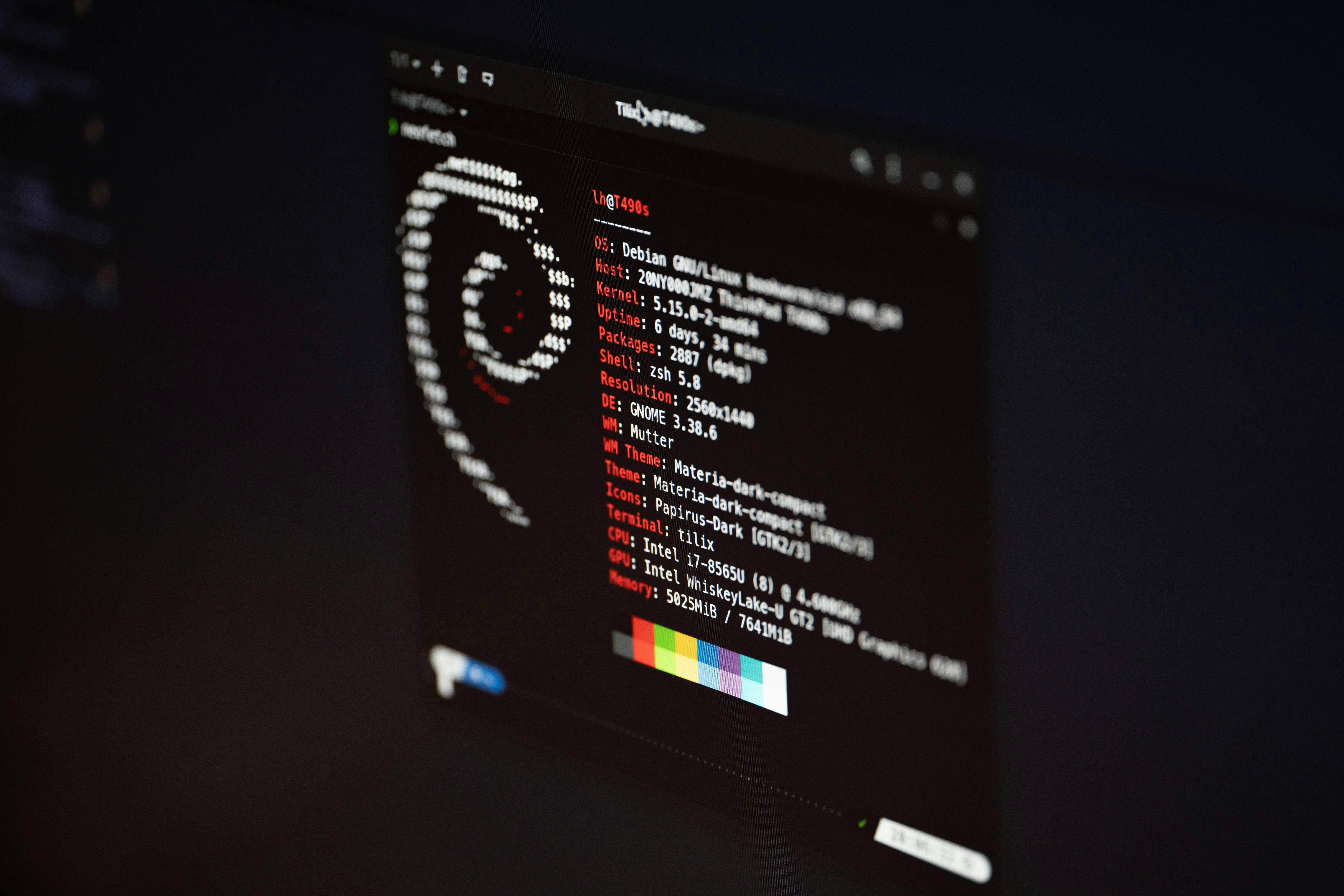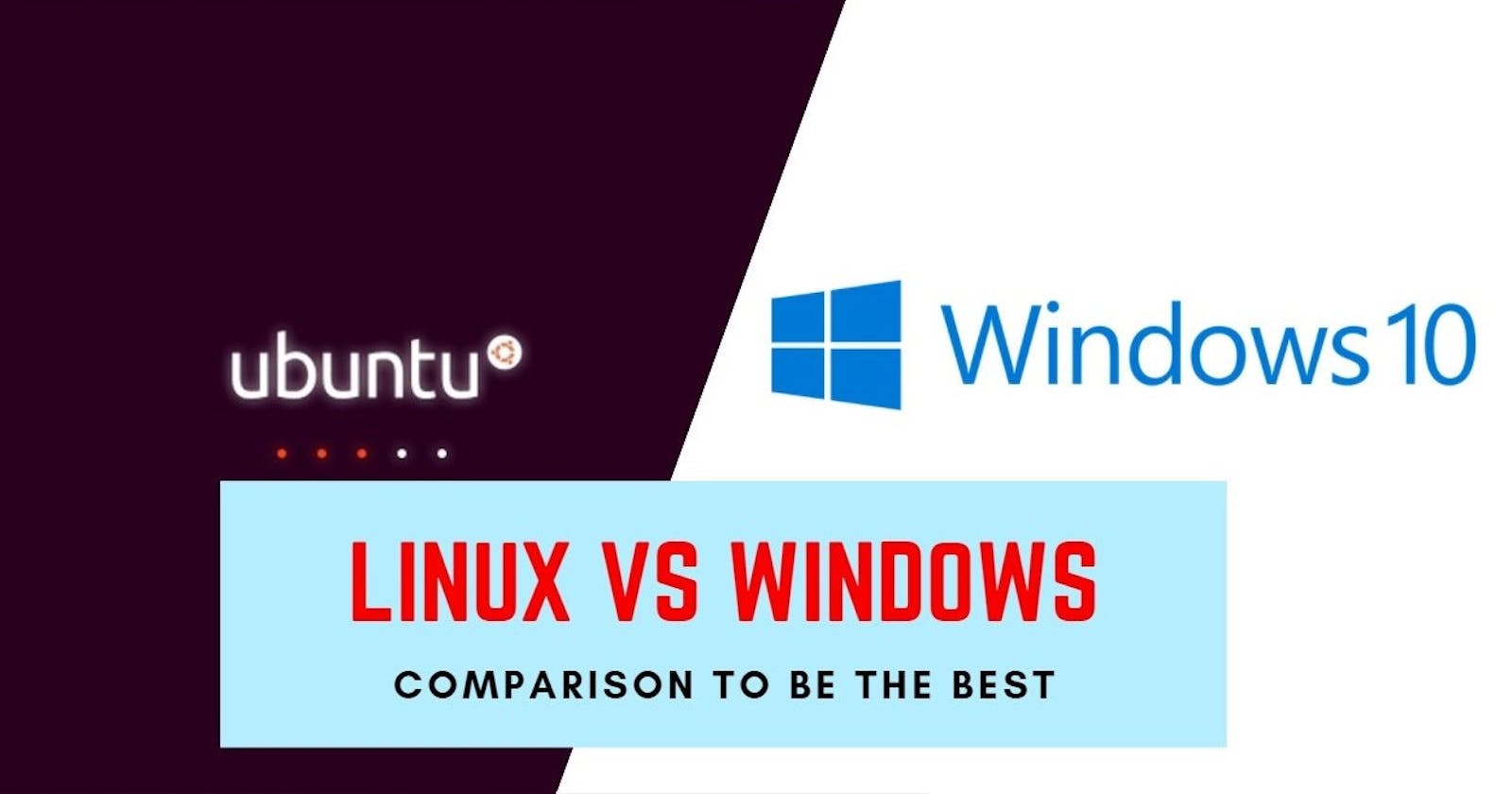Linux or Windows?
Those considering moving from Windows to Linux or Linux to Windows usually want to know the benefits and drawbacks of each operating system. Do you feel uncertain as to whether Windows is better than Linux?
Linux vs Windows is an age-old operating system conflict that has led to online battles, conflicts, and almost fanatical behavior, for what seems to be forever. I think it is important to stress that this article will not discuss which is, the best OS because it is impossible to come to that conclusion. It’s not as simple as comparing Linux and Windows considering how vastly different said OSes are. So hopefully what follows is a fair overview of these two Operating Systems based on various, common parameters.
Operating System (OS)
If we're talking about comparing these two, we should first understand what an operating system is, and then get to know the fundamentals of Linux and Windows before we actually compare them.
An operating system is low-level system software that manages the hardware and software resources of the device and supports the basic functions of the device such as task scheduling, resource management, memory management, peripheral control, networking, etc. It functions as an interface between hardware and software computers. The OS is the most critical component of a computer system. No computer or mobile device will work out at all without an OS!
Difference Between Linux and Windows
But let us get to know the difference between Windows and Linux a little better before we continue.
What is Windows Operating System?

Windows is a licensed operating system that is inaccessible to its source code. It is designed for company owners, other commercial users, and even people with no experience in computer programming. The application is simple and straightforward. Microsoft first introduced the Windows Operating System in 1985. Today it boasts the world's largest user base. With a series of updates over the years.
The first version of Windows, labeled as Windows 1.0, was disclosed in 1985 after Microsoft was created. It was based on the core of MS-DOS. In terms of core architecture, Windows hasn't improved much since this version despite large quantities of enhancements introduced to tackle modern computing.
Many of the systems we see on Windows Operating System today operate. The latest version of Windows is Windows 1, which came out as the successor to Windows 10 in Oct 2021.
What is Linux Operating System?

Linux is a free and open-source operating model based on Unix principles which provide both a programming interface and user interface compatibility. This also includes several elements which are built separately, free of source code.
Linux was developed by the Finnish student Linus Torvalds, who wanted to develop an OS kernel that anyone could use for free. Based on UNIX, Linux allows users to change the current code and create different versions or variations of it, which they can reuse and even sell.
This was released even later, in 1991, than Windows. But it was always considered a very streamlined operating system, lacking a Windows-like graphical interface. From just a few lines of source code in its initial release and where it stands today, having over 23.3 million lines of source code, Linux certainly has developed considerably. In 1992, Linux was distributed for the first time under GNU General Public License. Ubuntu grew to become the most popular desktop Linux distribution and has greatly contributed to developing an easy-to-use Operating System.
Topic | Windows | Linux |
| For a single approved copy, Microsoft Windows usually costs between $99.00 and $199.00 in the United States. Windows 10 has been planned for current Windows owners as a free update, but the deadline for that deal has long since elapsed. Datacenter Windows Server 2016 has a price starting at $6155. | The Linux kernel is fully free and open-source, including the GNU utilities including libraries that support it in most distributions. You can download and install GNU / Linux distributions without any purchase. Some organizations provide paid support for their Linux distributions but it is still free to download and install the underlying software. |
| Windows is lower in reliability than Linux. Reliability for Windows has changed a lot in the past few years. Nonetheless, because of its oversimplified nature, it still has some system instabilities and security vulnerabilities. Some of the compromises it makes in the name of user-friendliness will lead to devise instability and security vulnerabilities. | Linux is extremely stable and efficient. This one has a deep-rooted emphasis on process management, the security of the system, and response time. |
| Windows has a dense GUI that can be conveniently used by both professional and non-technical individuals. It's really quick and easy to use. The users who want their program to work find its ease and lack of complexity a plus. | It is mainly used by professional people and you should learn various Linux commands so you can work with Linux OS. New Linux versions are simpler to use than previous variants. Most Linux distros feature a GUI, similar to Windows, which enables the average computer user to use it quickly. Linux GUI versions are more user-friendly and lack all the additional "bloatware" that Windows is considered to have. Learning Linux can take a considerable amount of time for an average user. The Linux troubleshooting process is also harder than it is on Windows. |
| Simple to use. Needs much less input from users during setup. Installing Windows, however, takes longer compared to installing Linux. | The setup is a little complicated. Configuration needs lots of user inputs. |
| Given the fact that there are many free Windows applications, tools, and games, most Windows software is commercial and must be ordered. Many Windows applications will cost between $4.99 and $99, all of which aren't compatible with Linux. It also leads by a broad margin in video games. | Most of the applications, tools, and games available under Linux are free and open source. Even some complex applications, including GIMP, OpenOffice, and Star Office, are freely available. In addition, with the aid of compatibility layers for example WINE, multiple Windows programs can be executed on Linux. |
| Windows provides a very limited number of configuration options. | Linux has several variants or a variety of versions that are highly customizable depending on the user's needs. |
| Windows offers extensive support. Windows 10 software is easier to get to. Microsoft provides service contracts to its customers if more comprehensive assistance is needed. | Users also find the right assistant in colleagues, blogs, and forums. Linux undoubtedly has an edge here, because of the open-source community's collaborative nature. Many Linux companies like RedHat also sell customer service contracts. |
| Throughout the years, Microsoft has made significant changes to security at Windows. But since the operating system with the largest user base is the primary target for malicious coders, especially among novice computer users. As a result, Microsoft Windows is the most likely victim of viruses and malware of all major operating systems. All the user data is obtained from Windows. | Linux is an operating system that is extremely secure. While attack vectors are still uncovered, the source code is open and available for analysis by any user, which makes vulnerabilities easier to find and fix. Linux distros are not really collecting consumer info. |
Linux vs Windows: Key Points to be Remember
Linux is an open-source operating system while Windows is a commercial operating system.
Users of Linux can access the OS 'source code and make modifications according to their whims and fancies, whereas users of Windows can not (not easily) do so.
Linux runs faster, unlike Windows OS, particularly on moderately powerful systems, while Windows OS tends to slow down with the passage of time.
Windows extracts data to enhance the user experience, whereas Linux does not collect data.
Windows has an upper hand in gaming, as most developers only develop games for Windows.
Linux is much more reliable than Windows in the security quotient.
Linux is a highly secure system, and bugs and vulnerabilities can be fixed easily due to its open-source platform, which is not the case with Windows.
Due to its features and applications, Linux has emerged as the go-to system for large business owners over the last few years
Conclusion
In this post, we have discussed virtually all the differences between Linux and Windows OS. If you are trying to shift your operating system from Linux to Windows or the other way around, we hope this article will provide you with useful insights into the pros and cons of both.
I use Windows and Linux depending on what I need to do either by dual boot or virtualization. No OS is better than the other one in my opinion. However, both are distinct, doing their best to different consumer needs and business demands. All operating systems have different marketing goals. We can not generalize widely that Linux is absolutely free, or cheaper than Windows. Linux licensing costs are zero, but both Windows and Linux do have maintenance costs, software support costs, and IT staffing costs.
So, Linux vs Windows? This platform is open to arguments. Are your pitchforks ready?
If you feel we left out any useful points in the article, let me know in the comment section.

